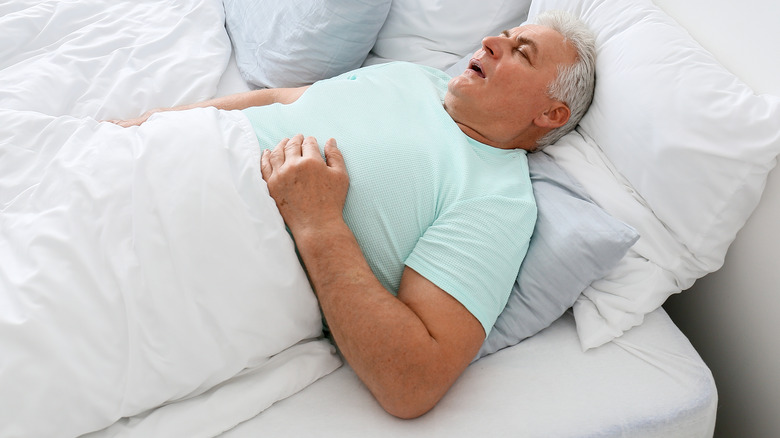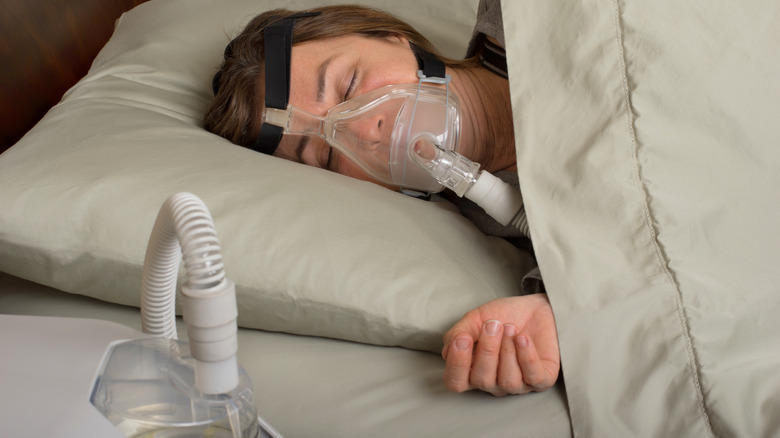Does Being Overweight Cause Sleep Apnea?
Sleep apnea occurs when you experience interruptions in breathing while you sleep. Most of the time, your upper airway becomes blocked, and that causes the disruption. There are three types of sleep apnea: obstructive sleep apnea (the most common), central sleep apnea, and complex sleep apnea syndrome. Symptoms of sleep apnea include snoring, gasping for breath while sleeping, dry mouth, waking with a headache, and being tired throughout the day (via Mayo Clinic).
People of any age can develop sleep apnea, and males seem to be more likely to develop the condition. Those with narrow throats are more prone to have problems with breathing while asleep. Smoking, blocked nasal passageways, being elderly, and family history can also increase your chances of being diagnosed with it. Drinking alcohol or taking sedatives can contribute to sleep apnea problems because they relax throat and neck muscles, according to the Mayo Clinic.
Being overweight is a major factor for sleep apnea
While several conditions can lead to sleep apnea, being overweight increases your chances of developing obstructive sleep apnea because excess weight is the most common cause of the condition. In fact, more than half of the people diagnosed with sleep apnea have a body mass index that is greater than 25, according to WebMD. At least part of the reason why being overweight contributes to sleep apnea involves fat deposits, called pharyngeal fat, that can block the upper airway. In addition, fat located around the lungs can restrict lung capacity, according to The Sleep Foundation.
For many people, using a CPAP (continuous positive airway pressure) machine is the initial treatment for treating sleep apnea. Losing weight is what doctors recommend for overweight individuals, according to the National Library of Medicine. In fact, modest weight loss may eliminate the need for a CPAP machine altogether.


